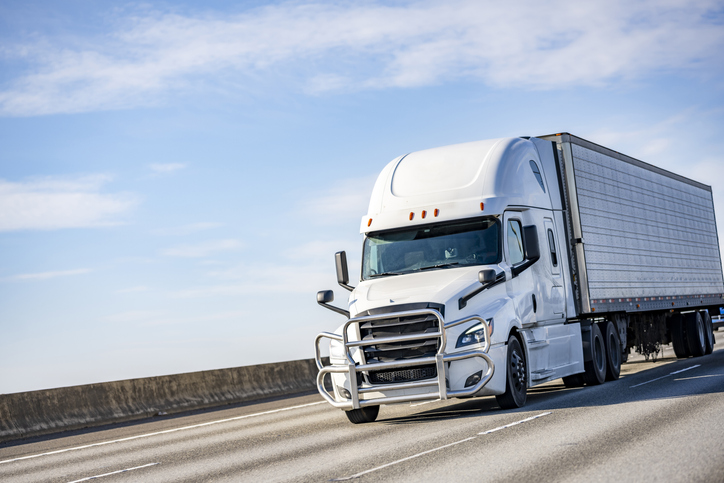
A Louisiana truck driver was tragically killed earlier this week when a heavy load he was hauling came loose and crashed into the cab of his vehicle.
Cargo Shifted as Trucker Was Slowing Down for Red Light
The April 4th crash occurred around 8:30 a.m. at the intersection of U.S. 90 at Bayou Gauche Road in Paridis, Louisiana.
According to the Louisiana State Police, the trucker was approaching the intersection in a 2007 Kenworth tractor-trailer while heading east on U.S. 90. As he slowed the rig for a redlight, the heavy load in the truck’s trailer shifted and came loose from its restraints. The cargo then moved forward into the cab, striking the driver.
“An unsecured load can be just as dangerous as any other roadway hazard,” the State Police said in a statement issued after Monday’s fatal crash. “Louisiana state law requires the load of a vehicle to be securely fastened to prevent it from becoming loose, detached or a risk to other highway users. Taking just a few extra minutes to check the securement of a load could prevent tragedy.”
While the trucker was properly restrained, he suffered fatal injuries and was pronounced dead at the scene. The victim has since been identified as a 52-year-old man from Terrebonne Parish.
Shifting Loads are a Leading Cause of Truck Accidents
The drivers of 18-wheelers and other heavy trucks already hold one of the nation’s most dangerous jobs. When crash fatalities are combined with trucker deaths from other factors, the industry experiences 26.8 deaths per 10,000 workers compared to 3.5 deaths per 10,000 workers overall.
According to the Federal Motor Carrier Safety Administration (FMCSA), poorly secure cargo contributes to 1 out of every 14 trucking-related accidents, enough to rank among the top 20 causes of truck and 18-wheeler crashes in the United States. When compared to any other crash factor, cargo issues also have the highest “relative risk” (56.3%) of contributing to an accident.
A fully-loaded 18-wheeler can weigh as much as 80,000 lbs., is more difficult to maneuver, and needs more time to stop than a typical passenger vehicle. Adding unsecured or shifting cargo to this mix can contribute to a crash by:
- Causing the Driver to Lose Control
- Alter the Rig’s Center of Gravity
- Cause the Cargo to Spill ont0 the Roadway
- Cause the Cargo to Shift Forward Towards the Cab
FMCSA Cargo Loading and Securement Regulations
Trucking and cargo companies are responsible for ensuring all cargo is properly loaded and secured on a truck before transport. The FMCSA’s cargo loading and securement regulations state that:
“Cargo must be firmly immobilized or secured on or within a vehicle by structures of adequate strength, dunnage (loose materials used to support and protect cargo) or dunnage bags (inflatable bags intended to fill space between articles of cargo or between cargo and the wall of the vehicle), shoring bars, tiedowns, or a combination of these.”
The agency has also established specific requirements for certain types of cargo, including logs and dressed lumber, metal coils, paper rolls, concrete pipes, motor vehicles (including those that have been flattened or crushed), heavy equipment and machinery, and large boulders.
The rules also stipulate that trucker drivers must routinely inspect the cargo they haul and make adjustments as needed to prevent shifting cargo.
Contact Our Undefeated Louisiana 18-Wheeler Accident Lawyers for a Free Consult by Calling 1-888-603-3636 or Click Here
Our Undefeated Louisiana Truck Accident Lawyers are monitoring developments related to Monday’s tragic accident in Paradis and will post an update if new information becomes available.
In addition to being undefeated, Our Experienced 18-Wheeler Accident Lawyers have won billions for crash victims and families across Louisiana and throughout the United States and consistently recover Record-Breaking Verdicts and Settlements on their behalf.
If you or someone you love was injured or tragically killed in an 18-wheeler accident or other trucking-related crash, please call 1-888-603-3636 or Click Here to send us a confidential email via our “Contact Us” form.
Your consultation is completely free, and because we only work for a contingency fee, you won’t pay us a dime unless we win your case.